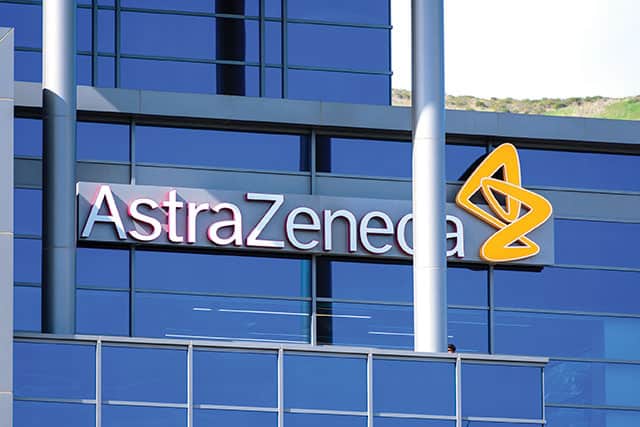
AstraZeneca has announced that its PD-L1 inhibitor Imfinzi (durvalumab) showed a ‘sustained and clinically meaningful’ survival benefit for patients with extensive stage cell lung cancer (ES-SCLC).
The CASPIAN phase 3 trial for the monoclonal antibody met its primary survival endpoint in June 2019, but the new analysis confirms that the survival benefit remains for more than three years for patients receiving both Imfinzi and chemotherapy versus chemotherapy alone.
Patients receiving the combination therapy saw a 29% reduction in the risk of death versus chemotherapy alone. An exploratory analysis estimated that 17.6% of patients treated with Imfinzi plus chemotherapy were alive after three years, versus 5.8% of patients treated with chemotherapy alone.
Small cell lung cancer accounts for 15% of all lung cancers and has a poor prognosis. For treatment purpose, clinicians divide SCLC into two stages: limited stage – where the tumour is found only in one lung, and extensive stage – where the tumour has spread to the other lung or other parts of the body.
Currently two-thirds of patients are diagnosed with extensive-stage disease. Prior to the arrival of immunotherapies, only 3% of patients with extensive-stage disease were alive after five years.
“Patients with extensive-stage small cell lung cancer historically have had limited treatment options and still face a dire prognosis, which makes this data that shows that three times as many patients survive for three years following Imfinzi treatment especially meaningful,” said Luis Paz-Ares, chair of the medical oncology department at the Hospital Universitario 12 de Octubre in Madrid, Spain and CASPIAN principal investigator.
Imfinzi in combination with chemotherapy (etoposide and either carboplatin or cisplatin) is approved in the first-line treatment of ES-SCLC in more than 55 countries, including the US, Japan, China and across the EU. It is also widely approved in non-small cell lung cancer (NSCLC) in unresectable, stage 3 disease after CRT and in previously treated patients with advanced bladder cancer.
As part of a broad development programme, Imfinzi is being tested as a single treatment and in combinations with other anti-cancer treatments in NSCLC, SCLC, bladder cancer, hepatocellular carcinoma, biliary tract cancer, oesophageal cancer, gastric and gastroesophageal cancer, cervical cancer, ovarian cancer, endometrial cancer, and other solid tumours.
Since its first approval in May 2017, more than 100,000 patients have been treated with Imfinzi.




